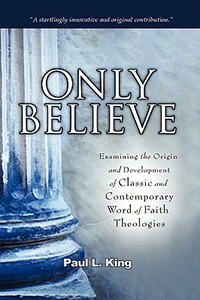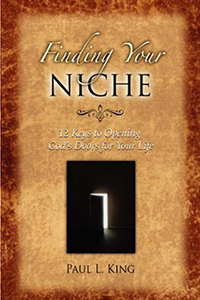Thoroughly Discerning Judgment—
Discerning Degrees of Purity
Years ago as a bi-vocational pastor, I sold jewelry for J.C. Penney and learned a lot about the degrees of purity of gold and diamonds. I also learned a similar scale for determining the purity and value of diamonds and other gemstones. I discovered that some of the Old and New Testament terms for discernment were used in the Bible for the process of assaying gold. The assaying of gold involves the process of determining whether the gold is real gold or fool’s gold as well as the degree of purity of the gold—10 karat, 14 karat, 18 karat, 24 karat gold, etc.
Thoroughly Discerning Judgment not only distinguishes right from wrong, truth from error, but also degrees of purity. Thoroughly Discerning Judgment is expressed by the Greek terms diakrino (verb) and diakrisis (noun), meaning “to judge through” or “judge thoroughly,” as well as by dokimazo, “to assay or test for purity.” In the Bible these terms are used of assaying gold—determining not only if something is real gold, but the degree of the purity of the gold (Job 23:10). The Apostle Paul makes a clear parallel connection between dokimazo and diakrino (1 Cor 11:28-32). God exercises diakrino, assaying for refined gold (Job 23:10) and dokimazo, examining our hearts (1 Thess 2:4), as well as assaying or refining us like gold (Prov 17:3; 27:21; Ps 12:6).
We are exhorted to “be transformed by the renewing of your mind, so that you may prove (dokimazo) what the will of God is, that which is good, acceptable, and perfect” (Rom 12:2). Some commentators like Origen and A.B. Simpson see a progression of stages here, as with assaying the purity of gold, distinguishing between that which is good, that which is acceptable, and that which is perfect. Simpson explains the nuances: “There are some who only aim to reach the good will of God. There are others who press on to the pleasing will of God, to a life which pleases God and has the testimony constantly of his acceptance. But there is a perfect will of God into which we may enter and realize all for which he has called us save us.”
God’s will is good, acceptable (well-pleasing), and perfect. However, not everything that is good or even well-pleasing is God’s perfect will. God’s permissive will is not His perfect will, but it is good nonetheless. Only that which is good, well-pleasing AND perfect is God’s complete or perfect will. So we need to discern whether the good and the pleasing are God’s perfect will. The perfect will of God goes beyond what God requires to what God desires. Doing what God requires is good and is acceptable, but just doing only what God requires is not the perfect will of God. Oswald Chambers avowed, “The greatest enemy of the life of faith in God is not sin, but good choices which are not quite good enough. The good is always the enemy of the best.”
Thorough discerning judgment is the provenance of the church. According to Paul, the Church, not secular courts of law, should discern thoroughly (diakrino) between believers (1 Cor 6:4-5). Such discernment is also to be used in the exercise of spiritual gifts: “Let two or three prophets speak, and let the others pass judgment [diakrino]” (1 Cor 14:29).
This level of discernment is manifested in two ways: 1) through practice and maturity (Heb 5:13-14); 2) through supernatural gifting (1 Cor 12:10).
Who Then Can Exercise This Level of Judgment?
Scripture itself gives us three key qualifications for Thorough Discerning Judgment:
-
Only those who have first thoroughly discerned themselves. Paul uses these terms to stress the importance of discerning ourselves, assaying ourselves for the degree of purity in our lives and discernment: “But a man must examine [dokimazo] himself, and in so doing he is to eat of the bread and drink of the cup. For he who eats and drinks, eats and drinks judgment to himself if he does not discern [diakrino] the body rightly. For this reason many among you are weak and sick, and a number sleep. But if we discerned [diakrino] ourselves rightly, we would not be judged (1 Cor 11:28-31).
Paul shows us that to examine (dokimazo) ourselves is to thoroughly discern (diakrino) ourselves, assaying the purity of gold in our lives. How do we do that? First, we acknowledge that God examines our hearts for the degree of purity (1 Thess 2:4). Then we pray, “Search me, O God, and know my heart, try me and know my thoughts, and see if there is any hurtful way in me, and lead me in the way everlasting” (Ps 139:23-24). Then we respond in contrition to what He reveals to us.
-
Those who are endowed with the gift of discerning (diakrisis) of spirits (1 Cor 12:10). This is a supernatural gift not based on merit, but on the grace-gifting of God. For some, this may be a major gifting from God that characterizes their lives on a more frequent repeated basis. However, anyone may be endowed for the moment with this gifting as the Holy Spirit deems fit.
-
Those who are experienced and mature. “But solid food is for the mature, who because of practice have their senses trained to discern [diakrino] good and evil” (Heb 5:14). Paul explains that this kind of judgment is for those who are wise: “Is it so that there is not among you one wise man who will be able to decide [diakrino] between his brethren, but brother goes to law with brother, and that before unbelievers? (1 Cor 6:5-6). Paul is indicating that “wise” people gifted in diakrisis should decide disputes.



Leave a Reply